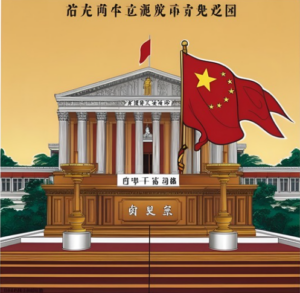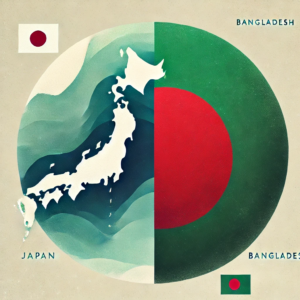Views
Finder on the Supreme People’s Court’s Notice on Foreign State Immunity Procedures

The news about the Supreme People’s Court of the People’s Republic of China issuing the Notice on Procedural Matters Related to Civil Cases Involving Foreign State Immunity has been previously reported on this blog.
Following this significant development, Professor Susan Finder, a distinguished Scholar in Residence at Peking University School of Transnational Law, has kindly shared her insights on the matter. Her post was originally published on the Supreme People’s Court Monitor. Given its valuable contribution, we decided to repost it here.
Our sincerest thanks to Professor Susan Finder for her thoughtful analysis and generosity in sharing her thoughts. Read more
The Supreme People’s Court of the People’s Republic of China issued the Notice on Procedural Matters Related to Civil Cases Involving Foreign State Immunity
(This is written by Xiaoxuan Gu, a PhD student in School of Law, University of Macau)
The Foreign State Immunity Law of the People’s Republic of China (CFSIL) took effect on January 1, 2024.[i] To ensure its proper implementation and guide courts nationwide in lawfully and efficiently adjudicating civil cases involving foreign state immunity, the Supreme People’s Court (SPC) formulated supporting procedural rules. On March 26, 2025, the SPC issued the Notice on Procedural Matters Related to Civil Cases Involving Foreign State Immunity (hereinafter the “Notice”), which provides definitive guidance to courts at all levels in handling such novel foreign-related cases.
The Notice stipulates provisions on key procedural matters, including case acceptance criteria, centralized jurisdiction mechanisms, service of process rules, jurisdictional immunity review procedures, and protocols for obtaining evidentiary certifications from the Ministry of Foreign Affairs. Read more
Caught Between Legal Boundaries: Child Custody Disputes Across Japan and Bangladesh
I would like to express my sincere gratitude to MD Sanwar HOSSAIN, LLB (Hons) Wolverhampton University, MSS (Dhaka University), PgDiP (Northumbria University), Barrister at law (Hon’ble Society of Lincoln’s Inn), Advocate (Appellate Division) Supreme Court of Bangladesh and Managing Partner, S Hossain & Associates law office, for bringing the Bangladesh courts’ decisions to my attention.

I. Introduction
The breakdown of an international marriage often leads to complex cross-border disputes, especially when children are involved. Tensions can intensify if one parent decides to take the children to their home country, often without the consent of the other parent.
In such cases, when the countries involved are signatories to the HCCH 1980 Child Abduction Convention, the Convention’s mechanisms are designed to facilitate the prompt return of children to their country of habitual residence. This framework aims to prevent unilateral relocations that could have lasting impacts on the child’s stability. However, when one or both countries are not parties to the Convention, resolving such cases becomes significantly more challenging. In such cases, national courts are compelled to address competing custody claims, assess allegations of wrongful removal, and determine whether they have jurisdiction to hear the case, all while balancing, often quite differently, the best interests of the children involved.
The case presented here is just one of many unreported cases where a romance relationship turns sour, leading to lengthy and contentious legal battles across jurisdictions. This note will focus on the Bangladeshi court’s treatment of the case, as it offers useful insights into the court’s approach to handling such complex cross-border disputes.
News
Short report: Conference on Sustainable Global Value Chains and Private International Law
On 17 October 2025, the EBS Law School in Oestrich-Winkel, Germany, hosted a conference Sustainable Global Value Chains and Private International Law. The conference was organised by Professors Veronica Ruiz Abou-Nigm (Edinburgh Law School) and Michael Nietsch (EBS Law School) as part of the Law Schools Global League Sustainable Global Value Chains Project (see also here).
The conference brought together a number of scholars specialised in private international law, company law, and contract law to discuss the role of private law and private international law in social, economic, and environmental sustainability within global value chains.
Keynote
Ralf Michaels (Max Planck Institute for Comparative and International Private Law, Hamburg, Germany) delivered the keynote lecture entitled “European Law for Global Value Chains – Human Rights Advancement or European Imperialism?” Professor Michaels addressed this question from a historical perspective. He related the historical roots of existing sourcing practices to contemporary supply chains, drawing on a wealth of theoretical insights. He further reflected on the conceptualisations that remain necessary for the legal discipline to contribute to addressing economic inequalities in contemporary global sourcing practices facilitated by interconnected chains of contracts.
After the keynote, several scholars provided insights into their current research, which resonated with various aspects of the keynote lecture. Read more
Virtual Workshop (in English) on November 4, 2025: Caroline Sophie Rapatz on “Fly Me to the Moon and Let Me Play Among the Laws?”

On Tuesday, November 4, 2025, the Hamburg Max Planck Institute will host its monthly virtual workshop Current Research in Private International Law at 10:30 a.m. – 12:00 p.m. (CEST). Professor Caroline Sophie Rapatz (Christian-Albrechts-Universität zu Kiel) will speak, in English, about the topic
“Fly Me to the Moon and Let Me Play Among the Laws?”
With the increasing privatisation and economisation of space activities, the need for private space law becomes urgent: Responsible exploration and exploitation necessitates suitable and reliable rules on jurisdiction and applicable law in Outer Space as well as substantive private law adapted specifically to space scenarios. The presentation will explore the options for developing a comprehensive body of such private (international) law rules within the framework established by the existing public international law treaties on space law. It will outline possible approaches to such an undertaking, using property law questions as the main example.
The presentation will be followed by open discussion. All are welcome. More information and sign-up here.
If you want to be invited to these events in the future, please write to veranstaltungen@mpipriv.de.
Inaugural event European Civil Justice Centre
In 2025, the European Civil Justice Centre (ECJC) was established at Erasmus School of Law in Rotterdam. This Centre was set up to facilitate the collaboration of scholars and other stakeholders across Europe and beyond in conducting research and related activities with a view to promoting access to justice. The Centre consolidates extensive work spearheaded by Erasmus School of Law civil justice scholars over the past fifteen years (see www.euciviljustice.eu), benefits in particular from support by the KU Leuven, and builds on collaborations with academics, practitioners and policy-makers around the globe. Read more


